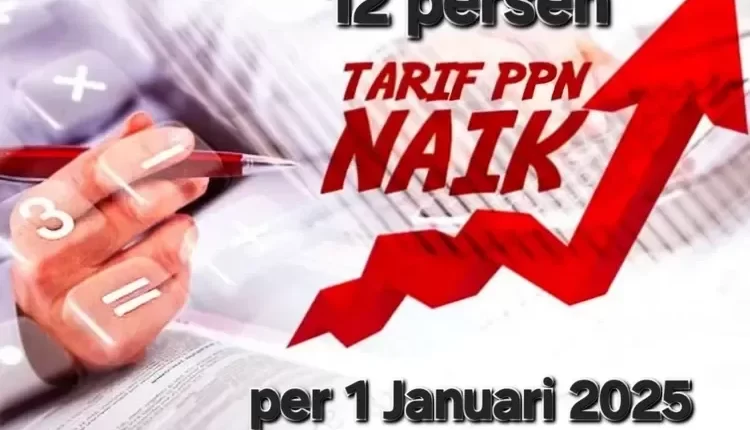12% VAT Supports Economic Equality Throughout Indonesia
By: Satria Wicaksono )*
The Value Added Tax (VAT) policy during President Prabowo Subianto’s administration reflects a strategic effort to support economic equality throughout Indonesia.
With the planned increase in VAT rates from 11% to 12% which will come into effect in January 2025, the government emphasizes the importance of optimizing state revenues to finance development programs. This policy is also designed to maintain fiscal stability while encouraging public welfare in various sectors, especially the lower middle economic group.
According to the Director of Counseling, Services, and Public Relations of the Directorate General of Taxes, Ministry of Finance, Dwi Astuti, the results of the VAT policy will be returned to the community in the form of various social programs.
Dwi explained that the funds collected through the VAT increase were used to support programs such as Direct Cash Assistance (BLT), Family Hope Program (PKH), Food Cards, and energy subsidies such as electricity and LPG. This effort is designed to ensure that low-income groups remain protected from the impact of the policy.
In addition, government policies also provide relief for Micro, Small, and Medium Enterprises (MSMEs). The government exempts Income Tax (PPh) for MSMEs with a turnover of up to IDR 500 million per year. This policy provides direct incentives for MSMEs, helping them to continue growing without being burdened by taxes.
This policy step is in line with President Prabowo’s vision to build Indonesia from the roots of the small economy which is the mainstay of rural communities.
The new VAT rate policy is also carefully designed so as not to burden the people’s basic needs. Dwi Astuti emphasized that basic necessities such as rice, grain, corn, and meat, as well as essential services such as health services, education, and public transportation, remain tax-free. In this way, the government ensures that the people’s basic needs remain affordable and protected from the impact of tax increases.
The policy of increasing VAT to 12% has received support from various parties. Head of Economics at Permata Bank, Josua Pardede, stated that the increase in VAT rates has a long-term positive impact on state revenue.
Additional revenue from taxes can be used to support sustainable development projects, including infrastructure and human resource (HR) development.
Josua also highlighted that this policy helps Indonesia approach the global average VAT rate of 15%, while increasing competitiveness in the ASEAN region. This step is in line with the vision of Indonesia Emas 2045, which aims to make Indonesia one of the largest economies in the world.
In addition to increasing state revenue, this policy is also considered capable of reducing dependence on state debt. By reducing the budget deficit, the government can finance strategic programs without having to rely on foreign loans. This is an important part of President Prabowo’s agenda to strengthen national economic independence.
If the VAT increase policy is not implemented, the potential lost revenue could hamper funding for development programs and reduce economic competitiveness at the global level.
On the other hand, the agricultural sector also welcomed this policy, with several important notes. The General Chairperson of the Indonesian Palm Oil Farmers Association (Apkasindo), Gulat ME Manurung, assessed that the increase in VAT could support development financing, as long as there were steps to maintain economic balance.
Gulat stressed the importance of ensuring that fresh fruit bunch (FFB) prices remain stable so that oil palm farmers can absorb the tax burden without losing income.
In addition, Gulat highlighted the need for a strategy to optimize the productivity of people’s oil palm plantations so that increased production can cover the VAT burden. This approach, according to Gulat, is very much in line with the sixth point of President Prabowo’s Asta Cita, namely building from the village for economic equality.
President Prabowo is committed to making community-based development a priority, including in the agricultural sector which is the backbone of the rural economy. By maintaining a balance between fiscal policy and the needs of rural communities, the government shows its seriousness in eradicating poverty in underdeveloped areas.
Furthermore, this VAT policy is also designed to create a more competitive investment climate. With rates that are closer to global standards, Indonesia can attract more foreign investors, which in turn opens up new job opportunities in various sectors. This investment is expected to make a major contribution in supporting equitable development between urban and rural areas.
However, challenges remain, especially in ensuring that the implementation of this policy runs effectively without creating additional burdens for the community. The government through the Ministry of Finance has ensured transparency in the allocation of tax funds. This step is important to build public trust in the government’s fiscal policy.
In ensuring the implementation of this policy is effective, public education is also a key element. With a better understanding of the benefits of taxes, the public can support this policy more positively.
The VAT adjustment policy in the Prabowo era is a strategic step to support inclusive and equitable development. By ensuring that basic needs are protected, providing incentives to MSMEs, and maintaining the balance of the agricultural sector, the government shows its commitment to economic equality throughout Indonesia.
This policy effort not only reflects President Prabowo’s vision to build an independent and prosperous Indonesia, but also serves as a strong foundation for achieving the ideals of Golden Indonesia 2045.
)* The author is a contributor to Pertiwi Institute
